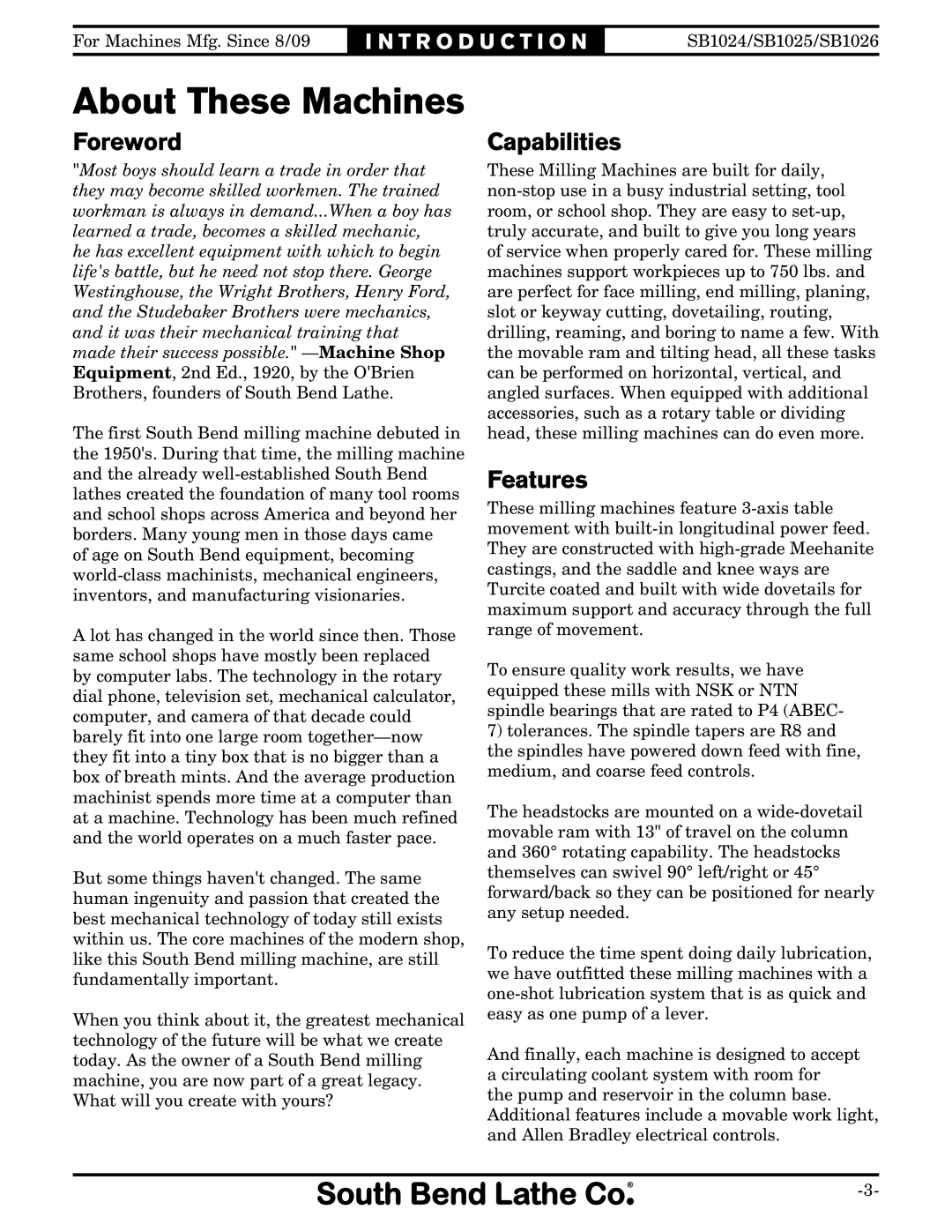For Machines Mfg. Since 8/09 | I N T R O D U C T I O N | SB1024/SB1025/SB1026 |
About These Machines
Foreword
"Most boys should learn a trade in order that they may become skilled workmen. The trained workman is always in demand...When a boy has learned a trade, becomes a skilled mechanic, he has excellent equipment with which to begin life's battle, but he need not stop there. George Westinghouse, the Wright Brothers, Henry Ford, and the Studebaker Brothers were mechanics, and it was their mechanical training that made their success possible."
The first South Bend milling machine debuted in the 1950's. During that time, the milling machine and the already
of age on South Bend equipment, becoming
A lot has changed in the world since then. Those same school shops have mostly been replaced by computer labs. The technology in the rotary dial phone, television set, mechanical calculator, computer, and camera of that decade could barely fit into one large room
But some things haven't changed. The same human ingenuity and passion that created the best mechanical technology of today still exists within us. The core machines of the modern shop, like this South Bend milling machine, are still fundamentally important.
When you think about it, the greatest mechanical technology of the future will be what we create today. As the owner of a South Bend milling machine, you are now part of a great legacy. What will you create with yours?
Capabilities
These Milling Machines are built for daily,
Features
These milling machines feature
To ensure quality work results, we have equipped these mills with NSK or NTN spindle bearings that are rated to P4 (ABEC-
7)tolerances. The spindle tapers are R8 and the spindles have powered down feed with fine, medium, and coarse feed controls.
The headstocks are mounted on a
To reduce the time spent doing daily lubrication, we have outfitted these milling machines with a
And finally, each machine is designed to accept a circulating coolant system with room for the pump and reservoir in the column base. Additional features include a movable work light, and Allen Bradley electrical controls.
